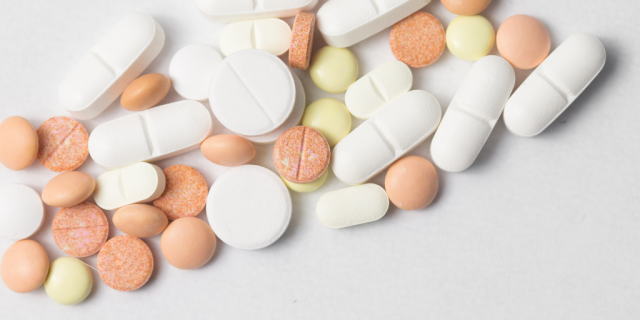
Prolonged use of medications to soothe heartburn and acid reflux may result in serious health problems. Researchers from Washington University School of Medicine in St. Louis and Veterans Affairs St. Louis Health Care System have linked long-term use of such medications, both prescribed and over-the-counter, to fatal cases of cardiovascular disease, chronic kidney disease and upper gastrointestinal cancer. This study could have a wide effect on the more than 15 million Americans who have prescriptions for proton pump inhibitors (PPIs).
Gastroenterologist Christopher Lynch, M.D., at Hillcrest South, knows how common these medications are and why they are so easily relied upon.
“PPIs are extremely common medications,” Lynch said. “They are powerful acid blockers and due to their ability to decrease acid production they are very useful in controlling symptoms such as heartburn and regurgitation, along with decreasing complications like strictures and erosions due to gastroesophageal reflux disease (GERD). As such, they are often taken for an indefinite period of time because GERD tends to be a chronic disease.”
The study found that the serious side effects are not only for those higher dose medications prescribed by physicians. Prolonged use of lower dose PPIs, which can be purchased over-the-counter, can also increase risk.
“Over the counter PPIs are just as potent and if these risks are real, the over-the-counter doses are not necessarily safer,” said Lynch. “Patients will take multiple doses to make up that difference. Also many patients are taking these medications without any sufficient reason, or they are taking them without maximizing therapy options that otherwise exist.”
PPIs are very effective in eliminating symptoms of acid but so are other non-medicated options.
Lynch suggests a number of lifestyle changes that can help patients get relief from GERD. The changes can be as simple as portion control or cutting out problem foods, like spicy and/or greasy items, all of which can trigger symptoms.
“We first suggest lifestyle modifications such as avoiding eating within four hours of bedtime, losing excess weight, avoiding overeating and quitting tobacco products,” said Lynch. “If lifestyle modifications are not enough, I recommend maximizing non-PPI medications, which reduce acid called H2 blockers. These medications, which include ranitidine and famotidine, are strong acid reducers as well. They seem not to harbor any of the risks that we are seeing linked to PPIs. Finally, some patients whose symptoms cannot be controlled with lifestyle modifications or medications can benefit from surgery to prevent reflux.”
People who suffer from heartburn, acid reflux and ulcers can start lifestyle modifications immediately. Changes should be tracked so it will be noticeable which changes are having a positive effect. If these changes do not have an impact, consult a physician.
“Patients who have been experiencing symptoms of gastroesophageal reflux disease for a long period of time should visit with their physician,” said Lynch. “Even if symptoms are controlled with lifestyle modifications or minimal medications, there is still a risk of developing Barrett’s esophagus, a pre-cancerous condition, which can lead to esophageal cancer. Esophageal cancer is a highly lethal cancer and identifying patients who are at risk for this condition is key.”
Make an appointment with your primary care physician if you have been suffering from these conditions and/or you have been taking PPIs. Click here to find a physician.
